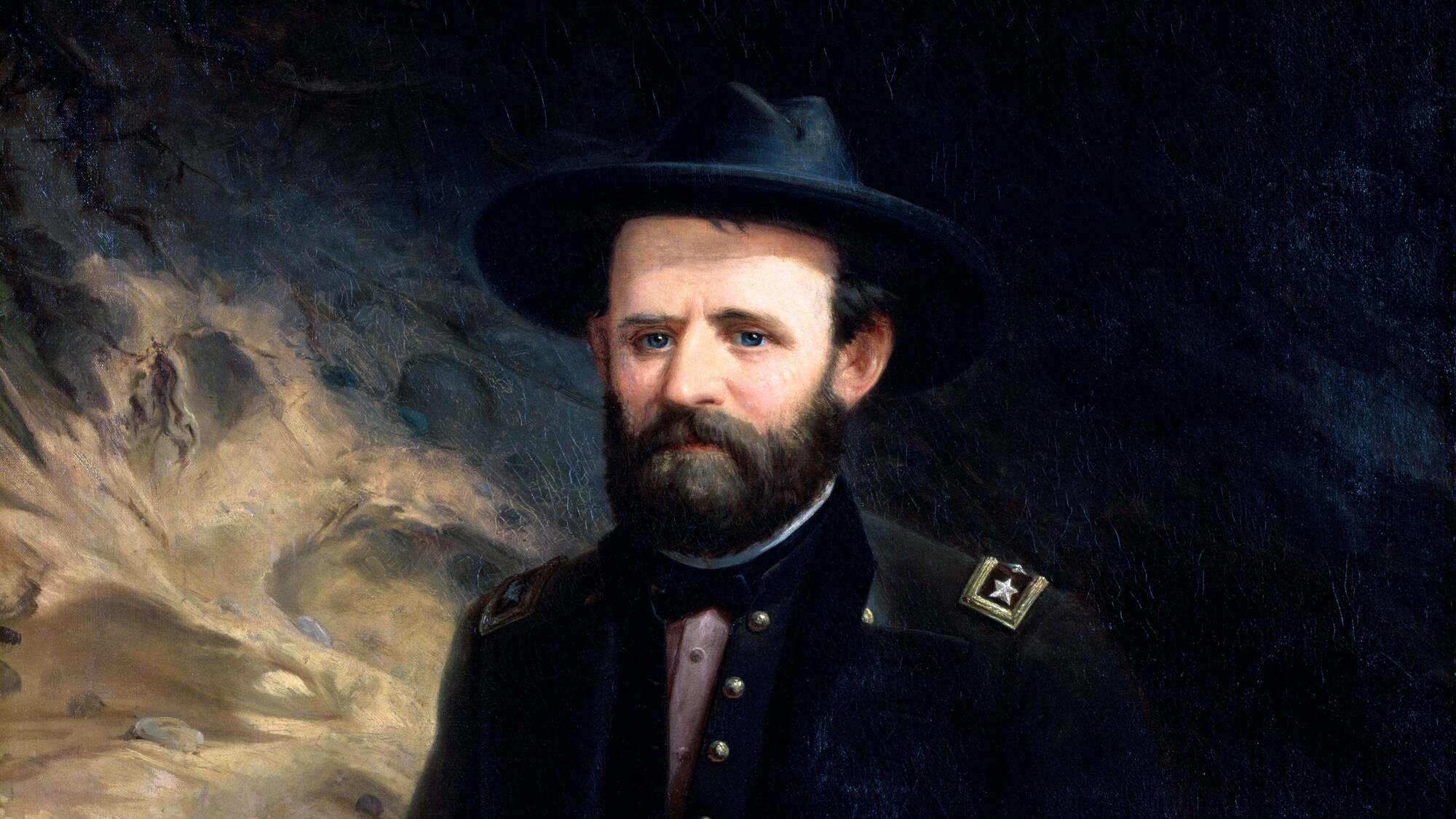
Ulysses S. Grant, the 18th President of the United States, remains a figure of great interest. Known for his leadership during the Civil War, Grant's life is filled with intriguing details. Did you know he was born Hiram Ulysses Grant but changed his name due to a clerical error? His presidency, marked by efforts to reconstruct the South and protect African American rights, faced numerous challenges. Beyond politics, Grant's personal life, military career, and post-presidency adventures offer a rich tapestry of stories. From his struggles with alcoholism to his world tour after leaving office, Grant's life was anything but ordinary. Dive into these 40 facts to uncover more about this complex and often misunderstood leader.
Early Life and Education
Ulysses S. Grant, the 18th President of the United States, had a fascinating early life that shaped his future leadership.
- Born on April 27, 1822, in Point Pleasant, Ohio, Grant was originally named Hiram Ulysses Grant. A mistake at West Point changed his name to Ulysses S. Grant.
- Grant's father, Jesse Root Grant, was a tanner and a businessman. His mother, Hannah Simpson Grant, was known for her strong moral values.
- As a child, Grant disliked working in his father's tannery. He preferred outdoor activities like horseback riding.
- At age 17, Grant entered the United States Military Academy at West Point. He graduated in 1843, ranking 21st in a class of 39.
Military Career
Grant's military career was marked by significant achievements and challenges, leading to his prominence during the Civil War.
- Grant served in the Mexican-American War under Generals Zachary Taylor and Winfield Scott. His bravery earned him two brevets for gallantry.
- After the Mexican-American War, Grant struggled with boredom and financial difficulties. He resigned from the army in 1854.
- When the Civil War began in 1861, Grant rejoined the military. He quickly rose through the ranks due to his strategic brilliance.
- Grant's victory at the Battle of Fort Donelson in 1862 earned him the nickname "Unconditional Surrender" Grant.
- In 1863, Grant led the Union Army to a crucial victory at the Siege of Vicksburg, splitting the Confederacy in two.
- President Abraham Lincoln appointed Grant as General-in-Chief of the Union Army in 1864. He accepted General Robert E. Lee's surrender at Appomattox Court House in 1865.
Presidency
Grant's presidency, from 1869 to 1877, was a period of reconstruction and reform, though it faced significant challenges.
- Grant was elected president in 1868, defeating Democrat Horatio Seymour. He was re-elected in 1872.
- His administration focused on Reconstruction, aiming to rebuild the South and integrate freed slaves into society.
- Grant signed the Enforcement Acts, which protected African Americans' voting rights and aimed to suppress the Ku Klux Klan.
- The 15th Amendment, granting African American men the right to vote, was ratified during Grant's presidency.
- Grant's administration faced numerous scandals, including the Whiskey Ring and the Crédit Mobilier scandal. These tarnished his reputation.
- Despite the scandals, Grant worked to stabilize the post-war economy and supported civil service reform.
Personal Life
Grant's personal life was filled with both triumphs and struggles, reflecting his resilience and character.
- Grant married Julia Dent in 1848. They had four children: Frederick, Ulysses Jr., Ellen, and Jesse.
- He struggled with alcoholism throughout his life, which affected his military and political careers.
- Grant was an avid horseman. He once received a speeding ticket for riding his horse too fast in Washington, D.C.
- After his presidency, Grant embarked on a world tour, meeting with leaders and dignitaries from various countries.
- Financial troubles plagued Grant in his later years. He lost his savings in a bad investment with a fraudulent partner.
- To provide for his family, Grant wrote his memoirs while battling throat cancer. His memoirs are considered among the best presidential writings.
Legacy
Grant's legacy is complex, marked by his military genius and his efforts to promote civil rights, despite the controversies of his presidency.
- Grant's tomb, located in New York City, is the largest mausoleum in North America.
- He is often remembered for his role in preserving the Union and ending slavery.
- Historians have re-evaluated Grant's presidency, recognizing his efforts to protect African American rights during Reconstruction.
- Grant's image appears on the U.S. $50 bill.
- The Ulysses S. Grant National Historic Site in Missouri preserves his farm and home, White Haven.
- Grant's leadership style influenced future military strategies and presidential policies.
Interesting Tidbits
Beyond his well-known achievements, Grant's life was filled with lesser-known but intriguing facts.
- Grant was the first president to serve two full terms since Andrew Jackson.
- He was the first president to visit the West Coast while in office.
- Grant established Yellowstone as the first national park in 1872.
- He was a talented artist, known for his sketches and paintings.
- Grant was colorblind, which affected his ability to distinguish between certain colors.
- He once received a gift of a live elephant from the King of Siam, which he declined.
- Grant was a voracious reader, with a particular interest in history and military strategy.
- He was known for his humility and often downplayed his achievements.
- Grant's favorite breakfast was cucumbers soaked in vinegar.
- He was a dog lover and had several pets, including a Newfoundland named Faithful.
- Grant's memoirs were published by Mark Twain, who admired Grant's writing style.
- Despite his financial struggles, Grant's memoirs were a commercial success, providing financial security for his family after his death.
Grant's Legacy Lives On
Ulysses S. Grant's life was full of remarkable achievements and challenges. From his pivotal role in the Civil War to his presidency, he left an indelible mark on American history. Grant's leadership helped preserve the Union and end slavery, shaping the nation's future. Despite facing personal and political struggles, his resilience and dedication to public service remain inspiring.
Grant's legacy isn't just about his military victories or political career. It's also about his commitment to justice and equality. His efforts to protect the rights of freed slaves and promote civil rights legislation were groundbreaking for his time.
Remembering Grant's contributions helps us appreciate the complexities of history and the individuals who shape it. His story is a testament to perseverance, courage, and the enduring impact one person can have on a nation.
Was this page helpful?
Our commitment to delivering trustworthy and engaging content is at the heart of what we do. Each fact on our site is contributed by real users like you, bringing a wealth of diverse insights and information. To ensure the highest standards of accuracy and reliability, our dedicated editors meticulously review each submission. This process guarantees that the facts we share are not only fascinating but also credible. Trust in our commitment to quality and authenticity as you explore and learn with us.


